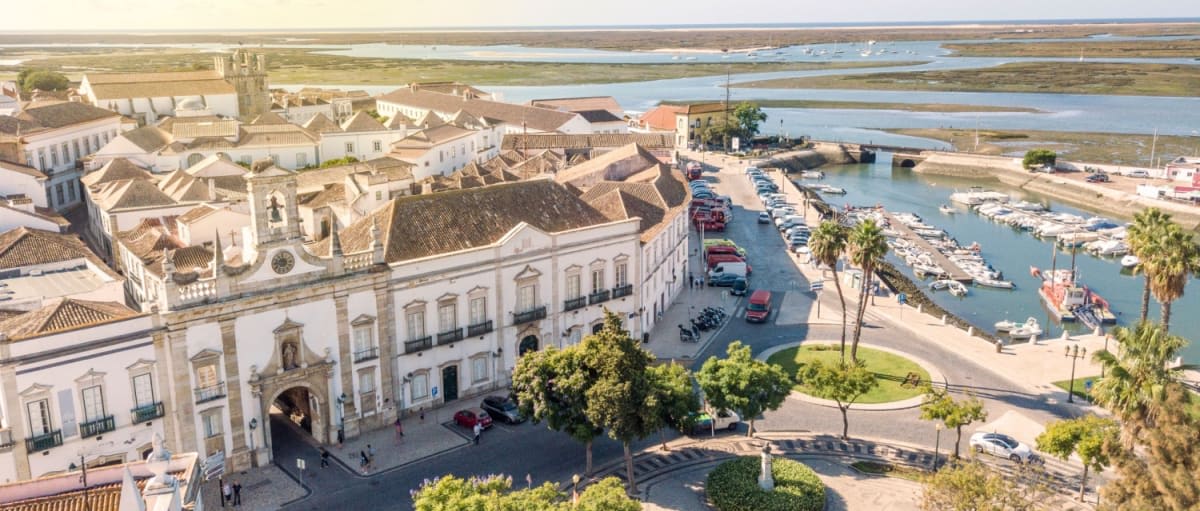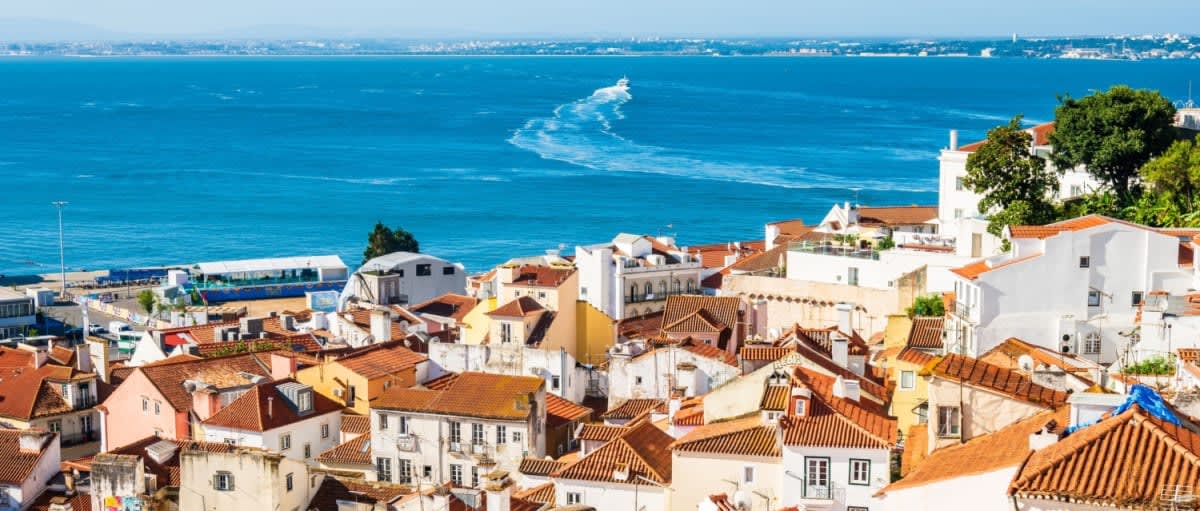Whether you’re moving to Portugal full-time or buying a holiday home, getting connected to the local utilities and communication services is a key step in settling in. From staying in touch with loved ones to watching your favourite films in the evenings, making sure you’ve got everything set up properly will make life much smoother from the start. That’s why it’s worth thinking about your utilities in Portugal ahead of the move.
Portugal offers reliable, modern infrastructure – in fact, it rolled out 4G before the UK and is continuously investing in ultra-fast internet and digital services. But when you’re new to the country, navigating providers and getting your home connected can feel daunting. That’s where we come in.
To help you understand each step, here’s what you need to know about getting your essentials up and running in Portugal for 2025 and beyond.
Contents

Television in Portugal
When you’re creating your new life, one of the utilities in Portugal you’ll want to connect first is your television. It can provide a genuinely valuable connection to local culture – or even just a way to switch off at the end of the day. Portugal has four main free-to-air channels: RTP1, RTP2, SIC and TVI. You’ll need a digital TV or a decoder box to access them, even though they’re not subscription channels.
The good news? While most general programming is in Portuguese, many foreign films and series are broadcast in their original English with Portuguese subtitles. This is a helpful and relaxed way to improve your Portuguese language skills over time.
You’ll also want to note that, like in the UK, there’s a television licence – but Portugal handles it differently. A modest annual fee is automatically added to your electricity bill, so there’s no separate system to worry about.
TV is useful not just for entertainment, but also for adjusting to local life. Channels broadcast national news, political coverage and cultural specials – giving you better insight into your new country.
For a closer look at the purchasing process, claim your free copy of our Portugal Buying Guide:
Download the Portugal Buying Guide
Satellite packages and bundles
If you’re keen on keeping up with British television or want a wider choice of entertainment options, it’s worth looking into satellite or cable packages. In Portugal, the leading providers include MEO (part of Altice Portugal), Vodafone and NOWO. These services offer bundle deals similar to those in the UK, incorporating TV, broadband and landline phone access.
Monthly packages usually range between €40 and €75, depending on speed and channel selection. Sports, films, documentaries and international channels are typically available, with many offering English-language shows by default. You may also have the option to add premium subscriptions like HBO Portugal, Netflix or Amazon Prime as part of your plan.
The prices and content vary regularly, so compare package deals across providers. You’ll need to present some form of identification and proof of address to register, such as your NIF number (Número de Identificação Fiscal) and a utility bill or rental contract.
Many expats opt for these all-in-one deals instead of relying solely on terrestrial TV, as they offer better value and access to wider content – perfect for those staying for longer periods or living in Portugal full-time.
Landlines and mobile phones
Although landline usage is declining in many places, they’re still relevant in Portugal – especially if you’re signing up for a TV and internet bundle. Landlines are usually included in the monthly fee. If you’re using the house part-time or don’t need broadband, a standalone landline can be set up with providers like MEO or Vodafone, although this option is increasingly rare in rural areas.
For most buyers, when it comes to utilities in Portugal, mobile phones are the priority. Portugal has excellent mobile coverage across the country, including 5G in major cities and towns. The three main mobile providers are MEO, Vodafone and NOS, all offering competitive pay-as-you-go and monthly contracts. You can bring your existing handset and insert a Portuguese SIM card, or sign up for a contract with a new phone.
Monthly mobile plans typically start at around €10–€20 for moderate usage, with generous data packages. If you need to stay connected on the go or work remotely, unlimited deals are also available and often include EU roaming. International calls made through mobile contracts are usually expensive, so many expats choose to use free internet-based services like WhatsApp, FaceTime or Skype to stay in touch.
You’ll need your NIF and passport to sign up for a contract, or you can walk into a shop and buy a prepaid SIM without much hassle.
Setting up energy and water services
Electricity, gas and water tend to be straightforward to set up as utilities in Portugal go – but knowing who manages what will make the process smoother. If you’re buying a property previously owned and lived in, services might already be connected. In this case, you’ll need to change the account details over to your name rather than starting from scratch.
Portugal’s electricity market is competitive, and there are several providers to choose from, including EDP, Iberdrola and Endesa. Electricity bills typically cover both supply and usage, and switching providers is possible if you find a better rate. Make sure to check your property’s power meter and whether it’s compatible with newer smart meters being rolled out across the country.
Water is managed at a municipal level. When you submit your change-of-ownership request, you’ll usually deal with the local town hall or the regional provider. Bring your identification, NIF, proof of ownership and bank details if you’d like to set up direct debit payments.
If your property connects to mains gas, you’ll also need to register with a local gas utility on a separate contract. However, in many rural areas, properties use bottled gas (gás botija). You can arrange regular deliveries from local suppliers or pick up refills at petrol stations or hardware stores.
Managing your utility bills
Once everything is set up, managing your bills is reasonably hassle-free. Most services offer online platforms or mobile apps so you can monitor usage, receive digital invoices and settle your bills quickly. You can also set up direct debits through a Portuguese bank account – this is usually preferred, especially for long-term property owners.
Typical monthly costs vary depending on your location and lifestyle, but here’s a basic breakdown to expect in 2025:
- Electricity and gas: Between €75–€150 per month depending on usage
- Water: Around €20–€40 per month
- Internet/TV/Phone bundle: €40–€75 per month
It’s worth shopping around periodically to check for better deals, especially for bundles. Switching suppliers can reduce your long-term costs considerably. If you’re only using your property part-time, speak to your provider about reducing your package or pausing services while you’re away.
Lastly, always watch out for renewal clauses and automatic contract extensions. Portuguese contracts can sometimes include fine print that ties you in longer than expected. Make a note of renewal dates and cancellation procedures to avoid unexpected charges.
Whether you’re planning a permanent move or just preparing your home for holiday stays, understanding how to get connected in Portugal is an essential step. Need help? Book a free chat with one of our property experts today – we’ll guide you every step of the way.
FAQs about utilities in Portugal
Core utilities include electricity, water, internet, mobile phone service and possibly gas. If your home has been previously occupied, these may already be connected – you’ll just need to transfer the contracts into your name.
Portugal has a competitive energy market. Major electricity and gas providers include EDP, Iberdrola and Endesa. You can compare rates and switch providers if needed, and smart meters are being rolled out nationwide.
You can access English-language content via cable or satellite bundles with providers like MEO, Vodafone or NOWO. Many channels broadcast English-language films with Portuguese subtitles, and add-ons like Netflix or HBO Portugal are widely available.
To register for utilities, you typically need your Portuguese tax number (NIF), proof of address (like a rental contract or deed), identification (passport or residency card) and bank details if setting up direct debit payments.
On average in 2025, electricity and gas cost €75–€150/month, water is around €20–€40/month, and TV/internet/landline bundles range from €40–€75/month. Prices vary by usage and location, so shop around for the best deal.









